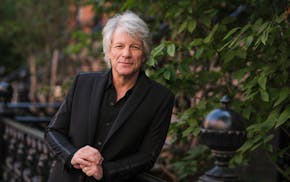Hope Krohn recalled the anxiety that struck her as she listened to fellow Edina High School seniors buzz about their college plans. Although she had been accepted at Winona State University, anticipating college left her feeling confused, exhausted and stressed -- before she had even gotten her high school diploma.
"I needed something else to get the wheel turning," she said. "I was ready for something new, but it wasn't college. Not yet."
Now 19, Krohn completed a year of service in the Minnesota Reading Corps in June. While continuing to live at home and earning a biweekly stipend, she worked full time with elementary students who read below grade level.
"I've made a real difference in the lives of children," she said. "That's shown me that I have power."
Prevailing wisdom has long held that it is risky for college-bound students to take time off. The further these students get from higher education, the thinking goes, the less likely they are to return.
But taking a gap year after high school to volunteer, travel, work or pursue internships is an option that is gaining ground. A small but growing number of structured programs provide learning experiences. The alternative has long been popular in Australia and Europe, where even Prince William took a year off before university.
"It's not goof-off time," said Holly Bull, president of the Center for Interim Programs. Her New Jersey-based firm connects students to "gap-year" programs that offer supervision and responsibility without academics or grades. The placements often include international travel, with service jobs in parks, farms and research facilities.
"Many kids benefit from taking a breather," she said. "It's eye-opening to step away from their culture and community pressure."
Bull advises seniors planning a gap year to apply to college and seek a one-year deferment.
Travels abroad
That's what Erika Espey-Sundt did. After graduating a year ago from the Perpich Arts High School in Golden Valley, the Minneapolis resident left for a year in Norway. She will begin her academic career this fall at St. Olaf one year older than other freshmen.
"St. Olaf was supportive," she wrote via e-mail. "They thought the chance to be here would be positive."
Espey-Sundt enrolled in a Norwegian program that connects high school graduates to an area of interest, without any classroom obligations. With plans to study international relations when she arrives in Northfield, she patched together experiences to expose her to the field.
"We have traveled around Norway and gone on five trips abroad, which enabled me to see the wide spectrum of jobs that are under the umbrella of hospitality and tourism. I also had the opportunity to work onboard a cruise ship that sails between Norway and Germany."
Jane Nordhorn, director of undergraduate day recruitment at St. Catherine's University in St. Paul, said gap-year students add value to campus life.
"They have unique experiences to share. We seek a diverse student body, and we define diversity as students from different backgrounds. Students learn from each other, not only in classroom discussions but in conversations in residence halls."
She reports a slight bump in the number of gap-year students arriving at the women's college. They almost always use their admission essay to explain the year off.
"We assess students by how they tell their story. We look for something to explain why the experience prepared them for college. I just read a student's essay about how her year helped her realize the value of education."
Bringing into focus
Gap-year programs vary in price. Some are break-even propositions, with students trading labor for room and board, plus paying their travel expenses.
Holly Bull of the New Jersey firm advises families to set up a budget for the year. She has found that taking time off can be cost-efficient in the long run.
"Because they hit college with more vigor, they're more likely to finish in four years. When students aren't inspired or focused, they're figuring it out while they're enrolled. That's not very efficient," Bull said.
By completing her Reading Corps service, Hope Krohn earned a $5,500 education grant to apply to her tuition when she arrives at Winona State this fall. But she said the real value of the year was not financial.
"I'm ready to do my best," she said. "Taking a break helped me see myself more clearly. You can think about what you want when you're not juggling so much."
Kevyn Burger of Minneapolis is a broadcaster, podcaster and freelance writer.
Olympian Kristi Yamaguchi is 'tickled pink' to inspire a Barbie doll

After 4 decades in music and major vocal surgery, Jon Bon Jovi is optimistic and still rocking
Rom-com author Emily Henry knows the secret to having a healthy relationship with love
